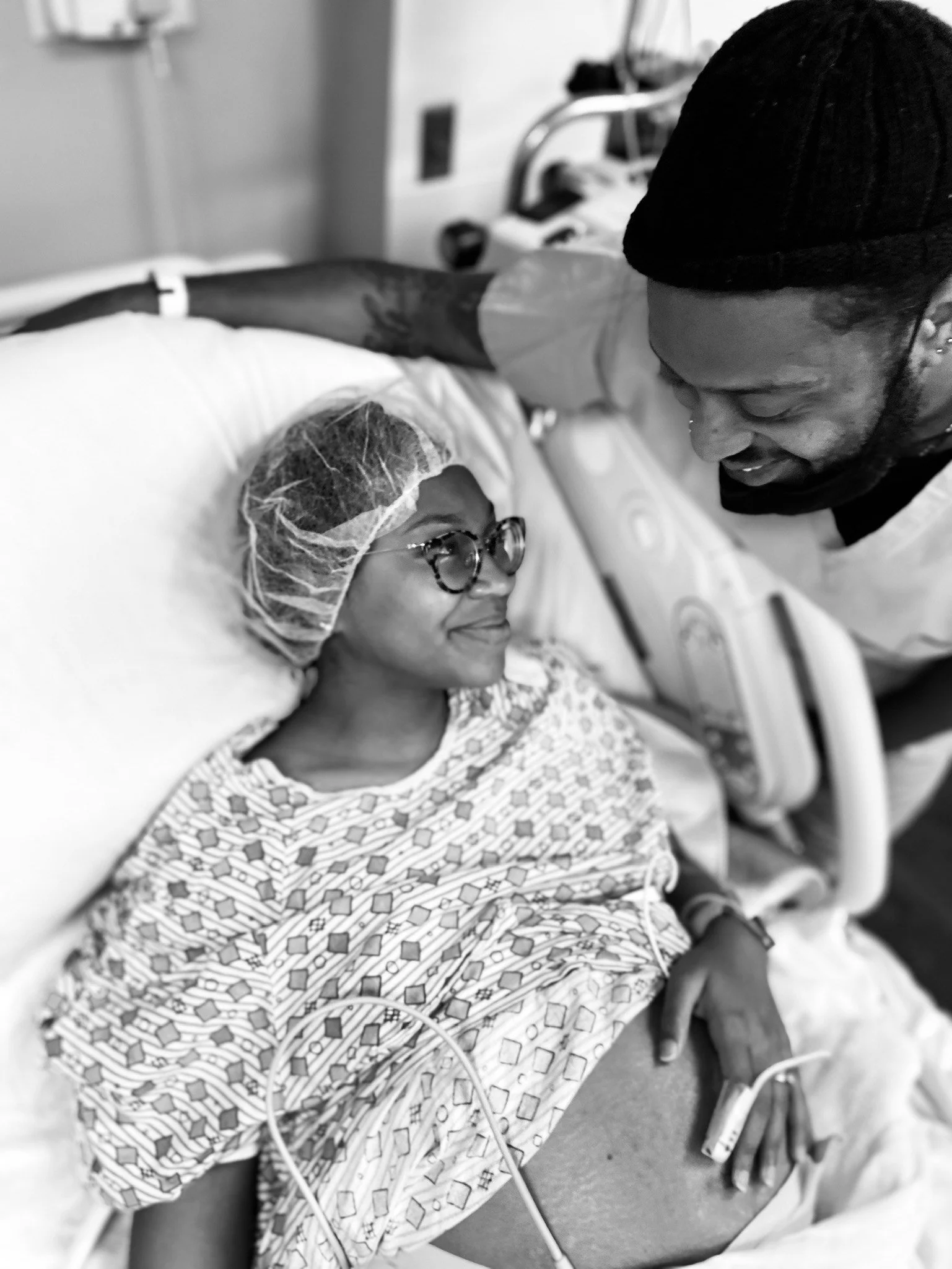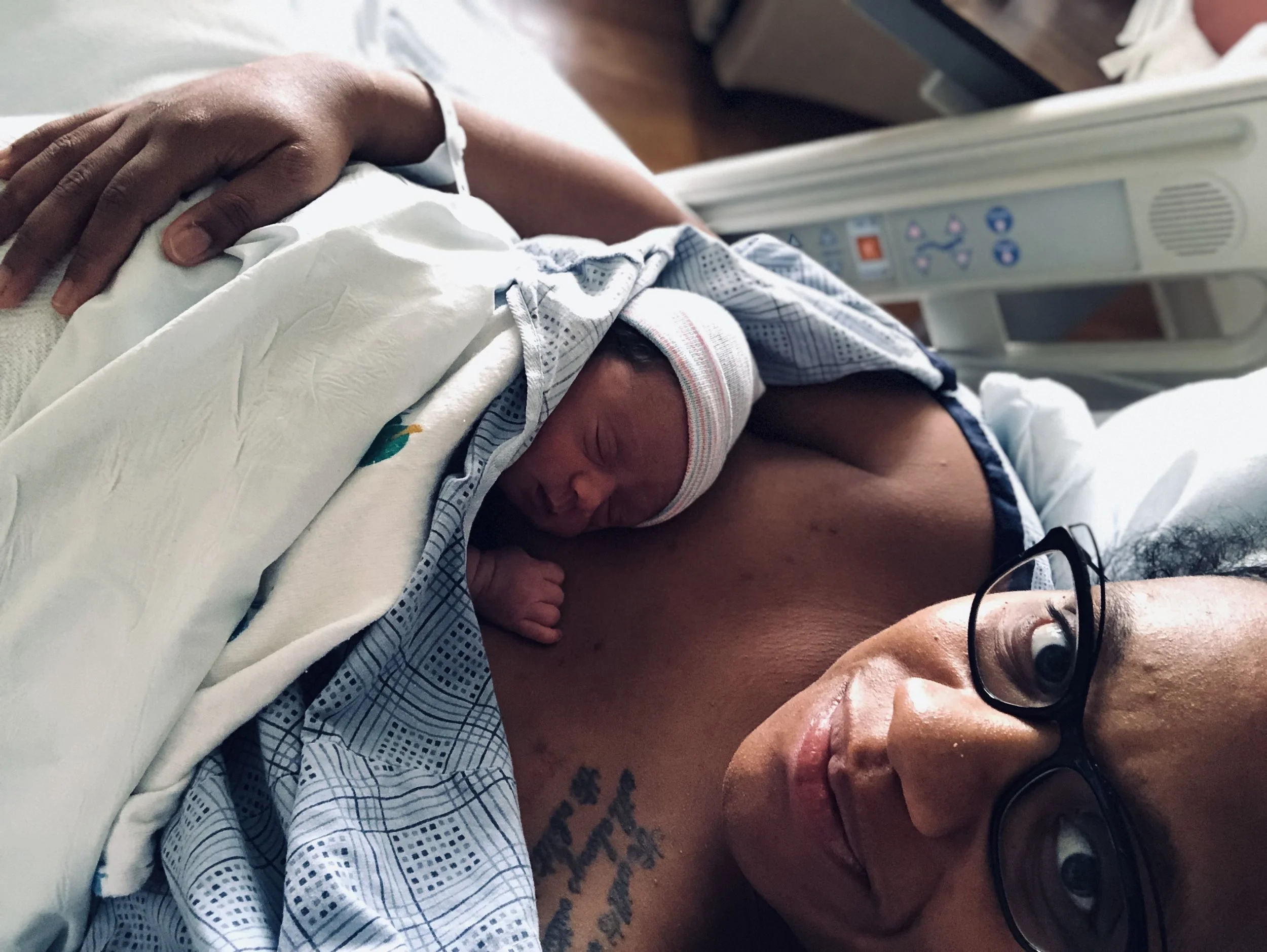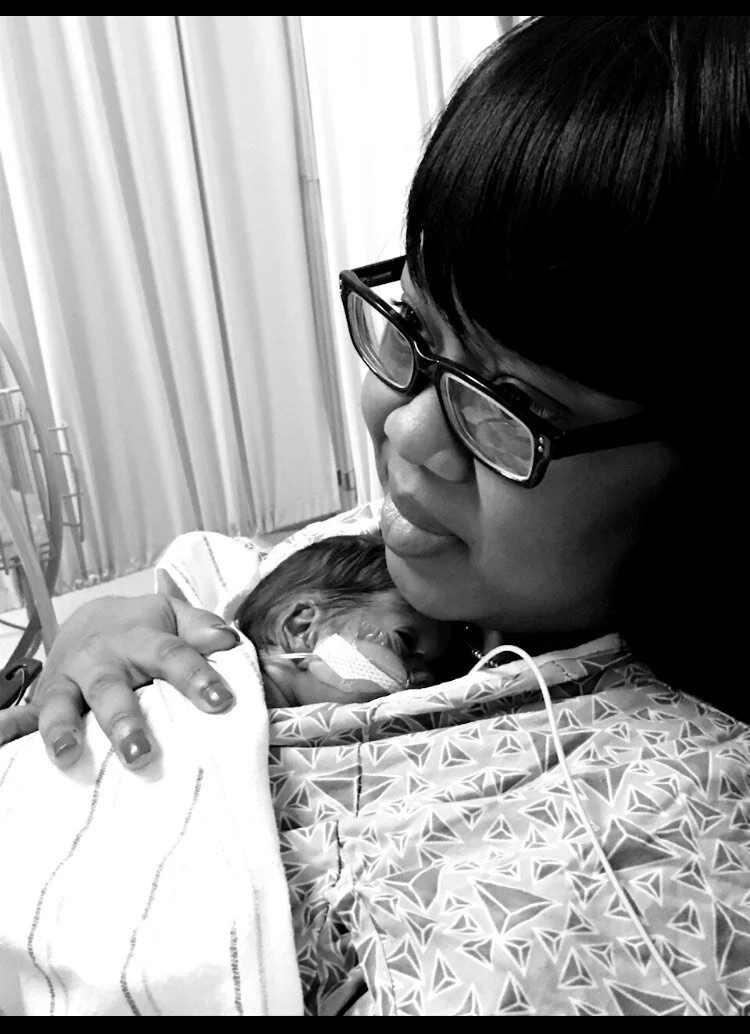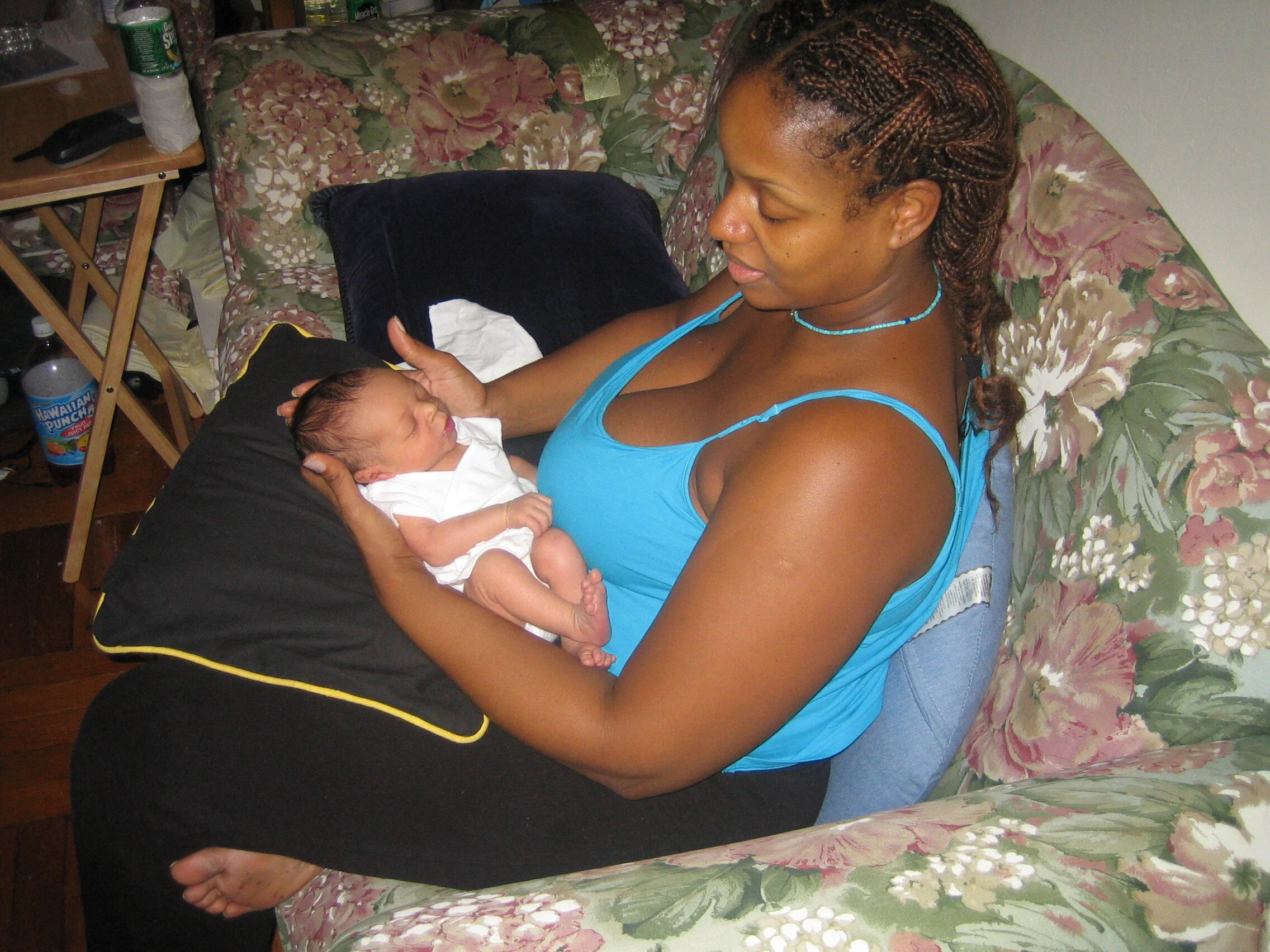With many stories to share, Dr. Vernette reflected with us on her most recent birth, her seven-month-old son Hudson. Understanding her birth experience with him began way before now. At sixteen, she got pregnant; however, her family was adamant that the choice to be made was termination. This decision would include a deep grieving process but set the stage for the subsequent important choices in her life. When she got pregnant again at 20, her mindset was clear; she was keeping this baby, the beginning process of finding her voice, especially in her womb.
Dr. Vernette had always known she had a calling to surrogacy, even before the birth of her first son - because she had "took life from her womb," she "wanted to give life." Working with a surrogacy agency, she was clear about the parameters of her surrogacy journey; staying clear about them allowed her to build an authentic relationship with the fathers of the twins. Upon meeting each other, they all immediately aligned, and in building a relationship that felt true for the three of them, she is still involved in the girl's life, with periodic calls and check-ins. Most notably, her surrogacy journey was the turning point for her about being intentional in setting intentions for the journey of carrying and birthing life. So in September 2020, when she became pregnant with her son Hudson she had a solid template to work from in building her birth team and navigating her pregnancy and birth.
Her birth team included her doula, birth photographer, three black midwives, and a friend serving as a maternal figure (filling the space of her mother and godmother who had passed). She shared the sentiment with all of them that she needed "to be mothered" for this journey. Throughout the birth, they did this, a moment that she recalls vividly is laboring in the birth pool, and whenever she reached out for support or comfort, there was always someone there. That support gave her the freedom to listen to her body - laboring on the toilet, utilizing movement, and when she felt the need to push, doing it without hesitation. Following the guidance of her midwife, she took a deep breath and pushed Hudson out. The final push to a birthing journey free of limitations!
Read More


















